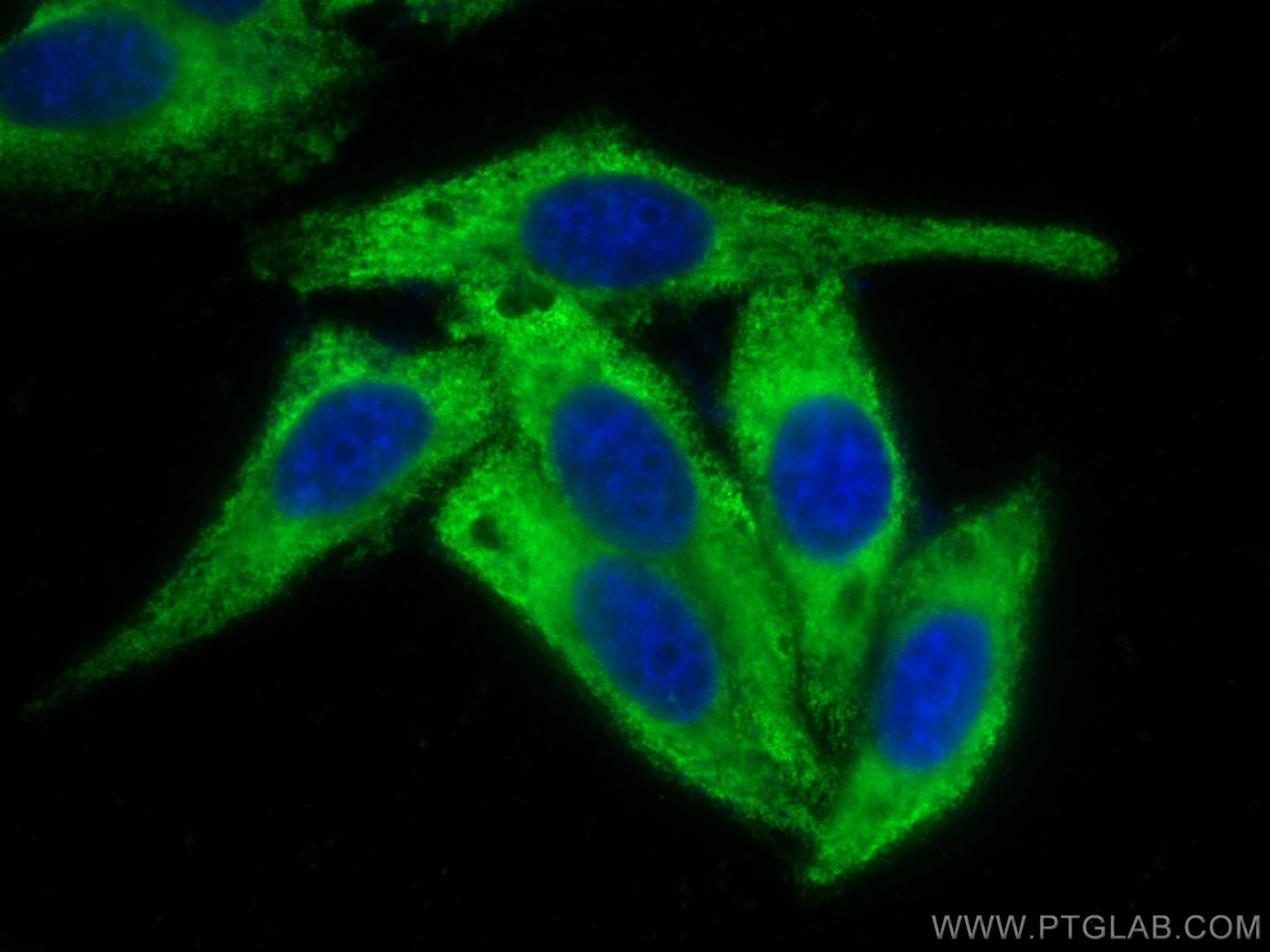Tested Applications
| Positive IF/ICC detected in | HepG2 cells |
Recommended dilution
| Application | Dilution |
|---|---|
| Immunofluorescence (IF)/ICC | IF/ICC : 1:50-1:500 |
| It is recommended that this reagent should be titrated in each testing system to obtain optimal results. | |
| Sample-dependent, Check data in validation data gallery. | |
Product Information
CL488-67497 targets GNB3 in IF/ICC applications and shows reactivity with Human, Mouse, Rat, Pig samples.
| Tested Reactivity | Human, Mouse, Rat, Pig |
| Host / Isotype | Mouse / IgG1 |
| Class | Monoclonal |
| Type | Antibody |
| Immunogen | GNB3 fusion protein Ag7050 Predict reactive species |
| Full Name | guanine nucleotide binding protein (G protein), beta polypeptide 3 |
| Calculated Molecular Weight | 37 kDa |
| Observed Molecular Weight | 35-37 kDa |
| GenBank Accession Number | BC002454 |
| Gene Symbol | GNB3 |
| Gene ID (NCBI) | 2784 |
| RRID | AB_3084352 |
| Conjugate | CoraLite® Plus 488 Fluorescent Dye |
| Excitation/Emission Maxima Wavelengths | 493 nm / 522 nm |
| Form | Liquid |
| Purification Method | Protein G purification |
| UNIPROT ID | P16520 |
| Storage Buffer | PBS with 50% glycerol, 0.05% Proclin300, 0.5% BSA , pH 7.3 |
| Storage Conditions | Store at -20°C. Avoid exposure to light. Stable for one year after shipment. Aliquoting is unnecessary for -20oC storage. |
Background Information
Guanine nucleotide-binding proteins (g proteins) are involved as a modulator or transducer in various transmembrane signaling systems, by integrating signals between receptors and effector proteins. G proteins are composed of an alpha, a beta, and a gamma subunit. This gene encodes a 34 kd beta subunit, being expressed in all tissues. Beta subunits are important regulators of alpha subunits, as well as of certain signal transduction receptors and effectors.
Protocols
| Product Specific Protocols | |
|---|---|
| IF protocol for CL Plus 488 GNB3 antibody CL488-67497 | Download protocol |
| Standard Protocols | |
|---|---|
| Click here to view our Standard Protocols |



